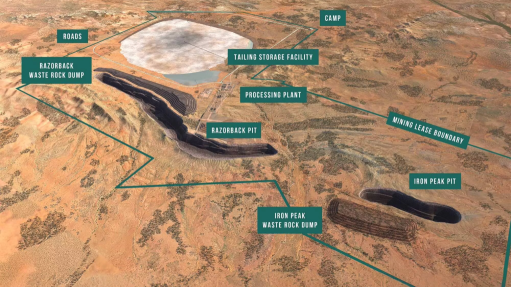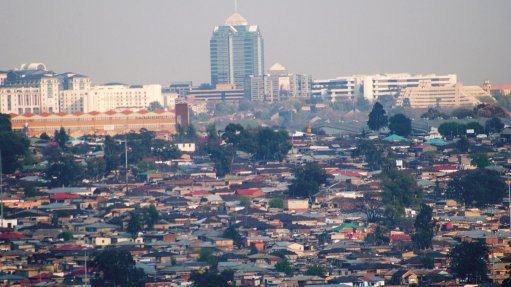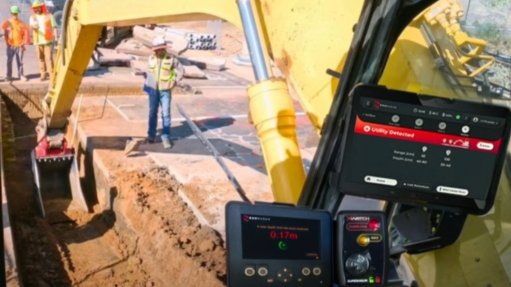There is no substitute for economic growth, Deloitte says ahead of 2024 Budget
A tight balance is expected for this year’s National Budget as South Africa’s woes continue; however, a significant, or fundamental, raising of taxes is not expected, with a tightening hold on revenue collections to bridge the budget gap foreseen instead.
South Africa’s 2024 Budget precedes a watershed election, companies are in a “zombie zone” and treading water, and a sluggish economy and a financially pressured tax base is supporting an ever-growing number of government dependants through social grants, all amid exposure to serious global economic headwinds, the latter requireing a structural overhaul of the economy so as not to be as sensitive to external shocks.
While many factors will guide how the Budget will play out, infrastructure failures and no room to squeeze consumers leaves Finance Minister Enoch Godongwana in a tough position requiring careful balancing.
This emerged during a Deloitte pre-Budget roundtable on Wednesday, where a panel discussed their views on South Africa’s economy and what to expect from the upcoming Budget speech on February 21.
In his 2023 Medium-Term Budget Policy Statement (MTBPS), tabled in November 2023, Godongwana pointed to “significantly weaker” public finances, and owing to the increased fiscal consolidation that was required, National Treasury had said that tax measures would be proposed to raise additional revenue of R15-billion for 2024/25 in the 2024 Budget.
Revenue collections were projected to be R56.8-billion below 2023 Budget estimates.
Deloitte senior associate director for transfer pricing Billy Joubert said that the country had an increasing debt burden, and while increasing taxes was one way of closing the tax gap, there was no substitute for growing the economy – or employment – amid a cost-of-living crisis.
“By far the biggest chunk of our tax revenue last year, at 35%, comes from tax on individuals, while value-added tax (VAT) contributed 25.2% of our tax revenue and that is those individuals spending money in the economy.”
“But you can only squeeze taxpayers so hard, and in the end, putting up tax rates will have the opposite effect to the primary need, which is growing the economy.”
Deloitte South Africa economic advisory leader Hannah Marias pointed to the rising financial pressure on consumers.
“Household spending makes up about two-thirds of gross domestic product (GDP) in South Africa. And the consumer has been under a lot of pressure. It is one of the reasons GDP growth will be below 1%,” she said, adding that the higher inflation levels had also decreased disposable income and that interest rates would likely hold during the first half of 2024.
“Inflation is slowing globally, but it certainly remains a risk to the outlook going forward for various reasons.”
Deloitte government and public services industry leader George Tshesane noted an increase in spending, but a decline in taxpayers.
“I call it the double-whammy. It is a function of the cycle we are in – a combination of politics, but on the other side is the economy,” he said.
Joubert highlighted a hardening of collection processes, which would go some way to bringing in revenue, with the South African Revenue Service's (Sars') increasing effectiveness in collections one way of ensuring more revenue to plug the R15-billion extra required, as indicated in the MTBPS.
While enforcement aimed at closing the gap would go a long way, Joubert said that there were no low-hanging fruits.
“The easiest is to raise VAT, but it is unlikely. The National Health Insurance (NHI) could justify raising VAT, but this will not be for a while.”
Tshesane warned that there was still no indication of how the NHI would be funded.
“We cannot afford NHI [and] we cannot afford the basic income grant.”
It is about affordability, he said, noting that while the grant had made a difference in people’s lives and provided interim relief, there was a need to ensure it did not become a permanent solution.
Currently, 28-million South Africans are beneficiaries of the grant, yet there are only 7.1-million taxpayers,” added Deloitte tax director Alex Gwala, questioning why the country was growing the 28-million beneficiaries and not the 7.1-million tax base.
Meanwhile, Marais commented that unlocking growth in 2024 would be difficult, with GDP growth of less than 1% predicted, population growth of 2% and an unemployment rate of more than 30%.
While South Africa has not gone into a recession or “flatlined”, it has not moved the needle either in terms of growth.
“We talk about creating jobs and what we need to do to grow the economy. We know what we need to do and one of the fundamental building blocks beyond solving for loadshedding, ports, railways and the broader logistics crisis, is investment in infrastructure,” she said.
However, about two-thirds of South Africa’s gross fixed capital formation is being driven by the private sector, which is under strain.
According to the National Development Plan Vision 2020, the “sweet spot” of investment for an economy that needs to grow is 30% of GDP.
“The last time we came close is the run-up to the World Cup in 2010, where we reached about 25%. Currently, we are at 14% to 15%,” she explained.
Tshesane concluded that there were no quick fixes; however, effective and efficient State-owned enterprises (SOEs) that did not require constant bail-outs would contribute to the country’s growth.
“We have normalised the idea that SOEs need to be bailed out. There are case studies all over the world of SOEs that run efficiently and effectively and compete with private sectors, and that is where we need to go.”
It will require correct policies, the right processes, governance, expertise and capability.
“[There is a need to] almost make a rule that says that any bailout is by exception. This will go a long way to fixing these issues, because they are not insurmountable.”
Deloitte Africa turnaround and restructuring leader Jo Mitchell Marais said that businesses were operating in a very challenging environment in 2024, with no capital being invested in their growth and many just one event away from closure.
“We are seeing a potential growth rate of 1%, but it is not enough. Throw in global headwinds, local challenges, such as the ports crisis, loadshedding and the interest rate that will not move until mid-year - all of that creates a very challenging environment for businesses.”
While businesses emerged from what could arguably be one of the toughest years with a counterintuitive decline in liquidations or business rescues, there was currently no room for them to move.
“They are in what we call a zombie zone, where they are able to pay their operating expenses and perhaps service some their debt, but no more. There is no capital being invested in their growth. They are one event away from a potential insolvency. We see 2024 as a year where it could be a bit of a catalyst from an insolvency perspective.
“We are anticipating a very challenging year for business. We need to grow jobs but we need to preserve what we have,” she said.
Article Enquiry
Email Article
Save Article
Feedback
To advertise email advertising@creamermedia.co.za or click here
Press Office
Announcements
What's On
Subscribe to improve your user experience...
Option 1 (equivalent of R125 a month):
Receive a weekly copy of Creamer Media's Engineering News & Mining Weekly magazine
(print copy for those in South Africa and e-magazine for those outside of South Africa)
Receive daily email newsletters
Access to full search results
Access archive of magazine back copies
Access to Projects in Progress
Access to ONE Research Report of your choice in PDF format
Option 2 (equivalent of R375 a month):
All benefits from Option 1
PLUS
Access to Creamer Media's Research Channel Africa for ALL Research Reports, in PDF format, on various industrial and mining sectors
including Electricity; Water; Energy Transition; Hydrogen; Roads, Rail and Ports; Coal; Gold; Platinum; Battery Metals; etc.
Already a subscriber?
Forgotten your password?
Receive weekly copy of Creamer Media's Engineering News & Mining Weekly magazine (print copy for those in South Africa and e-magazine for those outside of South Africa)
➕
Recieve daily email newsletters
➕
Access to full search results
➕
Access archive of magazine back copies
➕
Access to Projects in Progress
➕
Access to ONE Research Report of your choice in PDF format
RESEARCH CHANNEL AFRICA
R4500 (equivalent of R375 a month)
SUBSCRIBEAll benefits from Option 1
➕
Access to Creamer Media's Research Channel Africa for ALL Research Reports on various industrial and mining sectors, in PDF format, including on:
Electricity
➕
Water
➕
Energy Transition
➕
Hydrogen
➕
Roads, Rail and Ports
➕
Coal
➕
Gold
➕
Platinum
➕
Battery Metals
➕
etc.
Receive all benefits from Option 1 or Option 2 delivered to numerous people at your company
➕
Multiple User names and Passwords for simultaneous log-ins
➕
Intranet integration access to all in your organisation

















